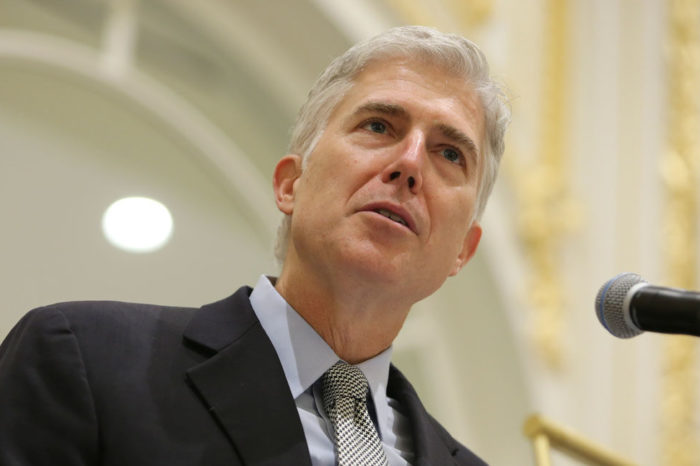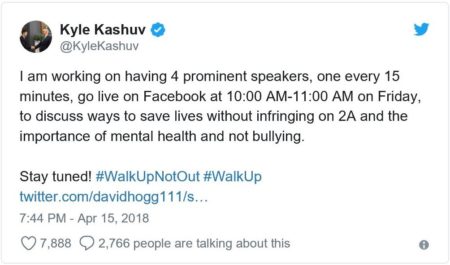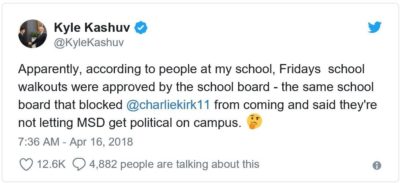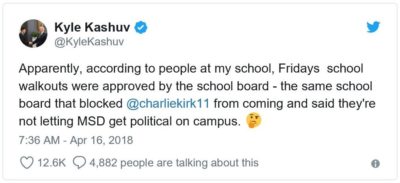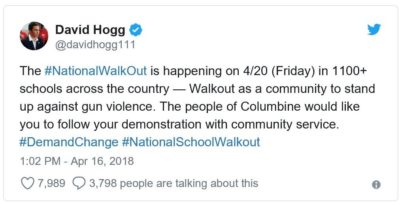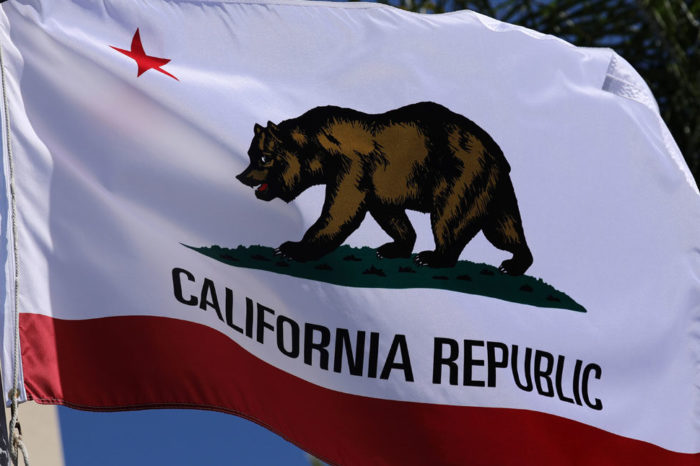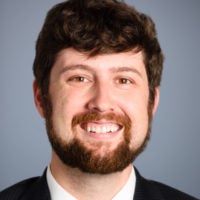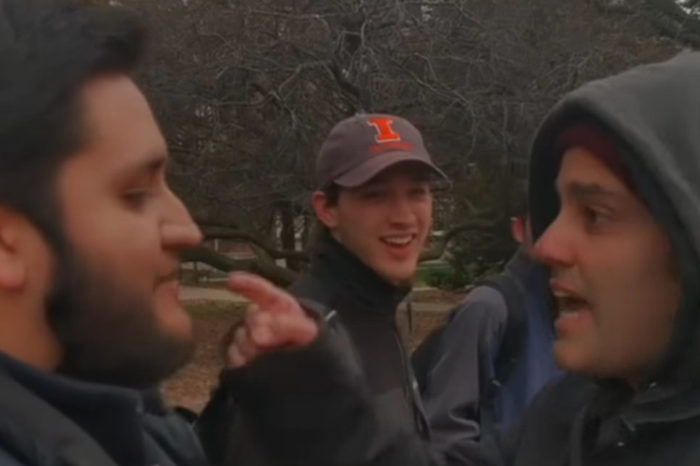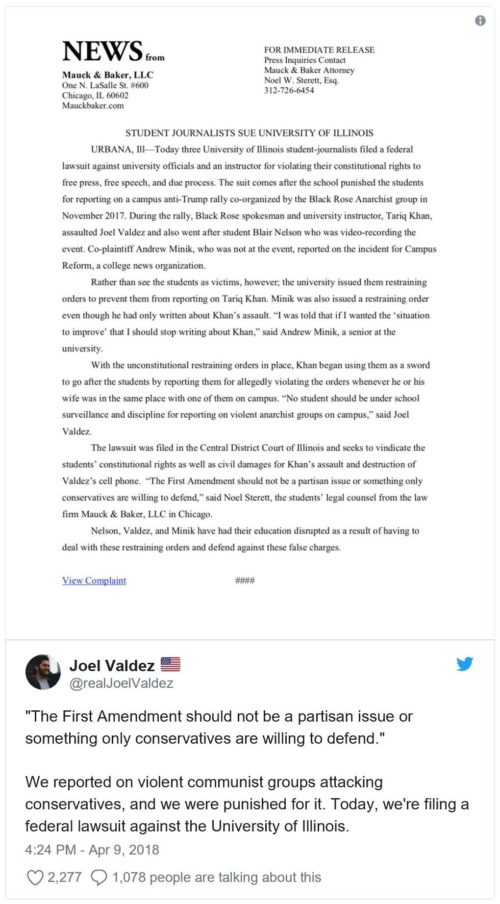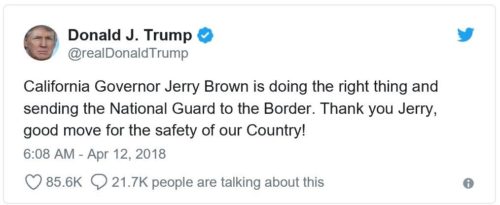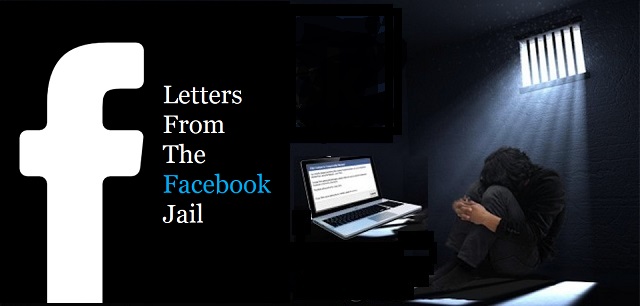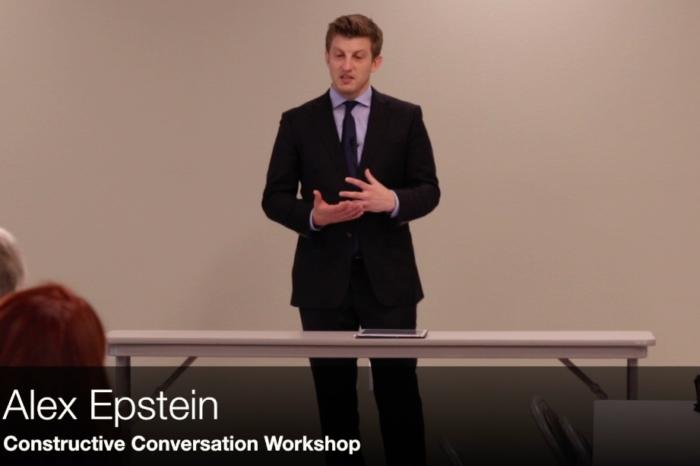Is America destined to become like California?
Twitter CEO Jack Dorsey created a stir recently when he tweeted out an article calling for an end to bipartisanship and the beginning of nationwide, one-party rule—similar to the Golden State. He called it a “great read.”

A Twitter spokesperson told The Daily Signal in an email, “Twitter’s tools are apolitical, and we enforce our rules without political bias.”
Nevertheless, the tweet certainly brings up concern over Twitter’s political bias.
The article, titled “The Great Lesson of California in America’s New Civil War,” argued that due to the intractable division of worldviews in America, bipartisanship is unworkable. It’s time to simply obliterate the other side.
The article was authored by Peter Leyden, the CEO of a media company called Reinvent, and Ruy Teixeira, a progressive political scientist. Teixeira argued after Barack Obama’s 2008 election victory that the GOP would go extinct for a generation because demographic trends would make Democrats unbeatable.
Needless to say, that didn’t come true.
But in a larger sense, it’s worth dissecting what a disaster the Californization of the whole country would be.
The authors point to California as a model for America’s political future. They explain how a once-bitterly divided state transformed into a state dominated by one party in a very short period of time—and they tout this as a good thing.
The problem in their analysis is that they essentially compare apples to oranges. The factors involved in California’s swing to one-party dominance were unique to California and can’t necessarily be applied to the country at large.
Moreover, Democratic Party dominance in California doesn’t necessarily mean Californians have become more progressive or that progressive policies have worked.
As a native Californian who has left the state, I witnessed California’s terrible turn firsthand.
Several factors went into this political sea change.
‘Jungle Primaries’ and Redistricting
California hasn’t always been a deep blue state. At one time it voted consistently for Republican presidential candidates, even up into the 1990s. But the state has gone leftward since that time, a situation fueled by both electoral and cultural changes.
In 2006, the state passed a new law requiring candidates to participate in a single consolidated open primary, often called the “jungle primary.” In these primaries, the top two vote-getters end up on the election ballot, where they square off against each other. This system has driven many Republicans off the election ballot, as the top two slots are often won by Democrats.
Some Republicans originally backed the jungle primary law, including then-Gov. Arnold Schwarzenegger. They hoped it would help moderate candidates in elections and thus make the state more bipartisan.
But what has happened is the exact opposite. This law made California ripe for one-party rule.
As The Daily Signal’s Fred Lucas wrote in The American Conservative, it led to bizarre absurdities, such as Democrat Sen. Dianne Feinstein being labeled the “Republican” option in a Senate race due to the fact that her only opponent was a more militant progressive than her.
Real political challengers are simply drowned out by the number of progressive voters in these primaries, and so a single ideology with only minor variance gets represented in the general election, as was the case in 2016 where Donald Trump was the only Republican on the ballot for a statewide election.
Larry N. Gerston, a professor emeritus of political science at San Jose State University, wrote for the Los Angeles Times that the jungle primary not only wiped out the Republican Party in California, it wiped out third parties that previously could challenge the status quo.
“California reformers argued that the major parties were dominated by extremes on the left and the right, and that a top-two system would attract centrist candidates, especially in districts where one party was dominant,” Gerston wrote. “They also contended that more competitive races would increase turnout. Early studies show that neither expectation has been met.”
In addition to the one-sided jungle primary system, a redistricting plan in 2010 tightened Democrats’ grip on the state. Initially billed as a nonpartisan effort to do away with gerrymandering, the plan was hijacked by state Democrats who stacked the commission with progressive activists posing as “Republicans.”
This further wiped out opposition to the Democratic Party in the state over the last decade.
Middle-Class Californians Flee in Droves
Another major factor in California’s shift to the left is changing demographics. Many point to immigration as the primary reason for this shift, but flight has also played a significant role as people leave the state.
For a state that progressives tout as the ideal, there has been a remarkable amount of migration away from California in the last decade. Discontented Californians are voting with their feet, and those feet are moving with a quickening pace.
Though Leyden and Teixeira wrote that Republican policies have “engorged the rich while flatlining the incomes of the majority of Americans,” it’s actually been middle-income Californians who are fleeing the state while rich Americans from the Northeast trickle in.
“People making $55,000 or less a year were mostly moving out of California between 2007 and 2016 … while people making more than $200,000 a year moved in,” according to one report described in The San Diego Union-Tribune.
According to real estate website Curbed:
Due in large part to the state’s housing crisis, California is becoming wealthier and more economically stratified, as more of its citizens find it difficult to make ends meet. Every year, the state falls roughly 100,000 units short of what it needs to keep up with housing demand. That’s driving many middle-class residents out of the state, with little hope of returning.
With so many middle-income people leaving, what is left over in California is a two-tiered system of rich and poor in which the rich thrive and the poor muddle along.
Amazingly, this amazingly rich state now has the country’s highest poverty rates and lowest rating for “quality of life.”
How can this be?
A Basket Case
“California’s de facto status as a one-party state lies at the heart of its poverty problem,” wrote Kerry Jackson, the Pacific Research Institute’s fellow in California studies. “With a permanent majority in the state Senate and the Assembly, a prolonged dominance in the executive branch, and a weak opposition, California Democrats have long been free to indulge blue-state ideology while paying little or no political price. The state’s poverty problem is unlikely to improve while policymakers remain unwilling to unleash the engines of economic prosperity that drove California to its golden years.”
With their opposition made toothless, progressives have been free to conduct their policy experiments unopposed. The results leave much to be desired.
The irony is that California now veers closer to the repressive Republican caricature that Leyden and Teixeira described in their piece rather than the progressive utopia they say they want for the whole country.
The state increasingly stands out in the union as an extremist and increasingly dysfunctional basket case. Wealthy residents can withstand the state’s failures, but everyone else is paying the price of bad policy.
While the harmful effects of progressive policies are statewide, and often fall hardest on the redder communities within the state, no city better reflects the end result of California-style progressivism than San Francisco.
Though it is one of the wealthiest cities in the country, San Francisco is becoming known for its notorious homelessness problem, escalating crime rates, and various other pathologies.
One FBI report noted that while overall property crime rates were down around the country in 2017, San Francisco’s rates had jumped by 20 percent in just a year.
The Federalist’s John Davidson wrote in an expose on the disintegration of this marvelously wealthy, yet increasingly dystopian city.
Here was the perfect chance for progressives to create their ideal society. With no political opposition for a generation and fabulous wealth coming in through the tech boom, it should have been easy to transform this iconic and perfectly located city into exactly what they wanted.
But Davidson poignantly notes that San Francisco fails when judged by the standards of progressives themselves.
“The absence of any organized political opposition, combined with its vast wealth, makes San Francisco a kind of proof-of-concept for progressive governance,” Davidson wrote.
“ … That’s why the housing and homelessness problems besetting the city open it up to more than mere mockery from conservatives but substantive criticism of progressive governance writ large,” Davidson continued. “It’s not just homeless encampments that bedevil San Francisco, but also the flight of the middle class and the emergence of a kind of citywide caste system: the wealthy, the service class, and the destitute. In some ways, San Francisco is becoming something progressives are supposed to hate: a private club for the super-rich.”
San Francisco has managed to create an environment that progressives claim to abhor most. It is a tragic display of how bad ideas, regardless of intentions, lead to dysfunction.
And those very ideas that are eating away at San Francisco are increasingly the dominant ideology in the state capital.
It’s no wonder that so many middle-income Californians are fleeing to more hospitable states like Nevada and Texas.
Some of these states, like Texas, are now actively encouraging California citizens and businesses to leave California to escape high housing costs, overbearing regulations, and punitive taxes.
Not only that, but some conservative expatriates have actually created organizations to help conservative Californians settle into Texas communities that better reflect their values.
And it’s working.
The result is that the state’s blue politics is rapidly becoming bluer as conservative constituencies ditch the state for greener pastures.
Resisting the #Resistance
California may be losing residents, and it may have institutional barriers that make it unlikely to see a serious change in state policies.
However, this doesn’t mean that there isn’t still a significant portion of the population that resents and opposes the actions of the state government.
While the California government is resisting the federal government and the Trump administration, many Californians are themselves resisting “the resistance.”
As The New York Times reported of the mostly rural, northernmost parts of California:
Many liberals in California describe themselves as the resistance to Mr. Trump. Residents of the north say they are the resistance to the resistance, politically invisible to the Democratic governor and legislature. California’s strict regulations on the environment, gun control, and hunting impinge on a rural lifestyle, they say, that urban politicians do not understand.
It’s not just the rural north and central valley that oppose the state’s direction. Several counties have come out in opposition to the state’s sanctuary policies that have provoked a legal battle with the Trump administration’s agenda.
Orange County in Southern California recently passed measures aimed at aiding the federal government in immigration enforcement. More cities and localities have joined it and others are likely to follow suit.
There have even been a few proposals to break up the state into a few smaller states. One such plan has been proposed by tech billionaire Tim Draper, though this will likely have difficulty getting approved by Congress.
The fact is, California is not so monolithic as it often appears to outsiders, despite the one-sided vision coming from the state’s capital and from Hollywood.
California may have one-party rule, but there is a festering opposition among the governed, many of whom are resentful that their voices are ignored in the halls of power.
This cauldron is a far cry from the blissful one-party rule that Leyden and Teixeira have predicted for the future.
And good luck bringing California-style governance to its red-state neighbors, which are now filled with ex-Californians who, like Paul Revere, are sounding the alarm about what’s to come.
As former California Assemblyman Chuck DeVore, who now lives in Texas and serves as vice president of the Texas Public Policy Foundation, wrote for Fox News, “California isn’t the future, rather, it’s what America’s 2016 election of Donald Trump saved the nation from becoming. It’s not a harbinger of things to come, but it will soon be an example of the fate we narrowly avoided.”
California’s fall from being the quintessential American dream to a series of gated communities surrounded by poverty is no model for the rest of the country. To the contrary, it is a dire warning.
RELATED ARTICLES:
Podcast: California Shows Progressive Policies Don’t Work
Eliminating Partisan Redistricting Will Make Politics Worse, Not Better
![]()



